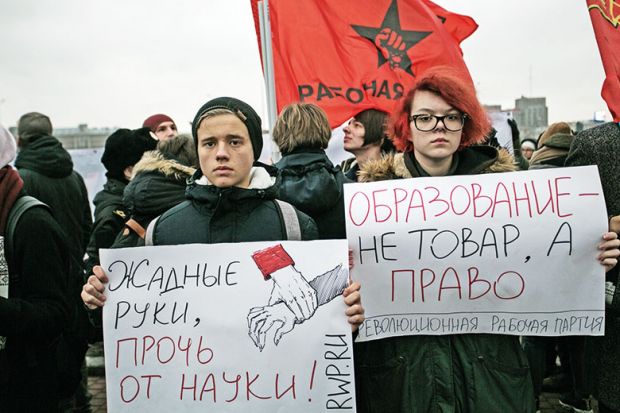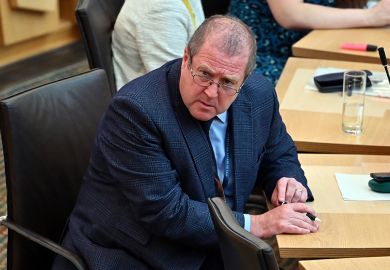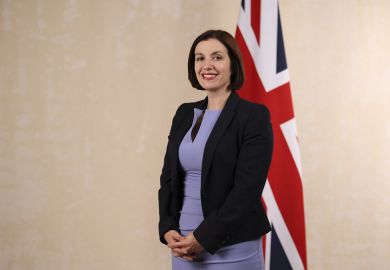International support for Russia’s “European” university helped the institution secure a new teaching licence after a long-running battle with authorities, a senior administrator has claimed.
The European University at St Petersburg, a private postgraduate institution, lost its teaching licence in March 2017 after a series of snap inspections by authorities, meaning that it was unable to teach students in the 2017-18 academic year.
Officials claimed that EUSP, which has just 250 students and offers courses in the social sciences and humanities, had violated up to 120 rules and regulations. Infractions included not possessing its own gym (the university rents one in a different building) and not displaying anti-alcohol messages.
However, the university said that the inspections were instigated by an official complaint from Vitaly Milonov, a member of the Russian parliament for Vladimir Putin’s United Russia Party, who expressed concern about the teaching of gender studies at the institution.
Speaking at the European Association for International Education’s annual conference in Geneva, Maria Trofimova, dean of international programmes at EUSP, said that the university was finally granted a new teaching licence last month, after three failed attempts over the past year.
She cited “international solidarity”, which included members of the global academic community writing letters in support of the institution to governmental agencies, as a reason for why the latest licence application was successful.
“No governmental agency would ever admit” that the letters were a factor in their decision, but such support “changes the mood and the perception of what the university means for world academia in general”, Dr Trofimova said during a session on threats to academic freedom in Europe.
Universities also rallied to provide practical support to EUSP, she said, with King’s College London, the European Humanities University based in Lithuania, and Russia’s Higher School of Economics all admitting EUSP students last year so that they could continue their studies.
Seven prestigious US universities, including Harvard, Stanford and Yale, also provided research placements for EUSP students who wanted to finish their studies at EUSP once it received a new licence.
Speaking to Times Higher Education last year, Grigorii Golosov, professor of comparative politics at EUSP, expressed concern about the motives behind the closure of the institution.
He said: “The very systematic and apparently coordinated character of this move suggests that there was something wider beyond this well-organised and efficient attack. So the question is: ‘what was the ultimate purpose?’”
The “ultimate goal”, he said, might be “simply to close down any kind of activities of the European University”.
POSTSCRIPT:
Print headline: Global allies help Russian academy win new licence
Register to continue
Why register?
- Registration is free and only takes a moment
- Once registered, you can read 3 articles a month
- Sign up for our newsletter
Subscribe
Or subscribe for unlimited access to:
- Unlimited access to news, views, insights & reviews
- Digital editions
- Digital access to THE’s university and college rankings analysis
Already registered or a current subscriber? Login








